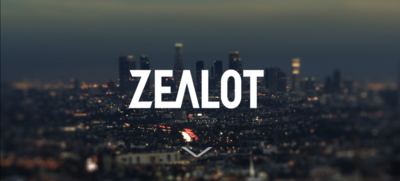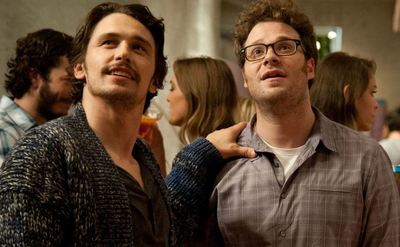
BY ZACHARY WIGON |
Racking Focus: 'Mitt,' Netflix, and the Future of Distribution
In the future, the audience will come first, and the content will follow.

As any regular reader of Racking Focus will well know, this column is devoted, in no small part, to prognosticating with respect to the future of film distribution. With this ever-evolving question in mind, I turn this week to Netflix, which is subject to a wonderful analysis this week by Ken Auletta in The New Yorker. Auletta seems to think that broadcast television's days—with their set showtimes and various commercials—are quite numbered, and I'm inclined to agree.
As Auletta's piece suggests, the idea at the moment seems to be that eyeballs alone are reason enough to generate content—the viewership comes first, and the content follows. As Auletta describes it, when Netflix made its first streaming deal, with Starz, they agreed to pay three times the company's yearly operating budget in order to access Starz's content—but streaming brought with it an unstoppable amount of customers, and Netflix's rise in the entertainment distribution field was assured.
Could Kickstarter begin commissioning original films and web series?
Watching Mitt, the thoroughly entertaining political doc that Netflix bought, then premiered at Sundance this past month, I was fully aware of the fact that Netflix's move into TV comes only a moment before a similar move into film production and distribution seems imminent—after all, Netflix considers its main competitor to be HBO, and that network has done extremely well with some of its original films. What HBO and Netflix have in common is that they're sources of visual entertainment for significant amounts of viewers; where this viewership goes, original content must follow.
Viewers are no longer concerned with the brand of the content distributor.
It leads one to consider what a future landscape of distribution might look like if this theory continues to hold. Why limit original content to sites like Netflix and HBO? Could Kickstarter begin commissioning original films and web series, perhaps fully or partially financing them by pre-selling the ability to watch them via the site's mechanism, then being able to ensure that the projects make a profit—in advance—by keeping the projects' budgets below the amount of revenue pre-sales brought in? What about sites like Fandor, a subscription service for streaming films that recently brought on indie producing master Ted Hope as their new CEO? The borders between production and distribution, original and archived content, seem so porous at the moment as to be nonexistent.
All a website needs is eyeballs—with that and no other requirement, an original series could prove worthwhile. Viewers are no longer concerned with the brand of the content distributor, as audiences may have been back in the 80s or 90s when cable movies-of-the-week were deemed inferior to original films coming from broadcast networks. Content has reached a new egalitarian state, and viewers are consistently differentiating less between different channels through which content is provided.

